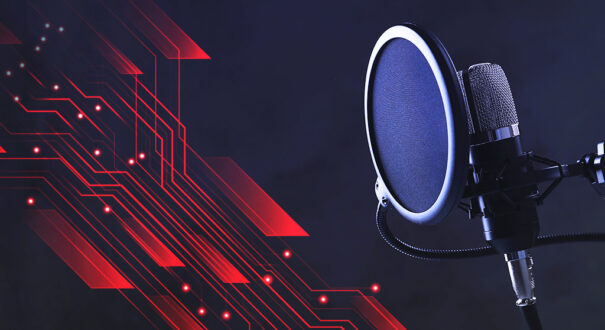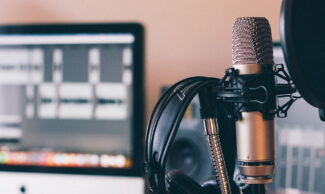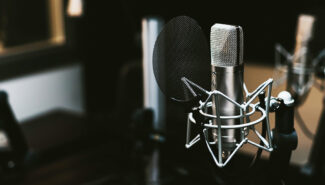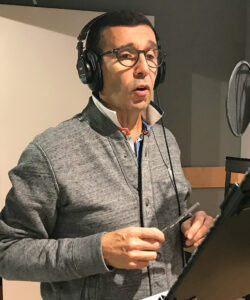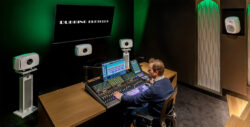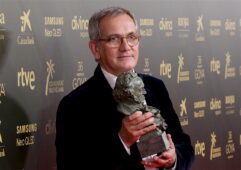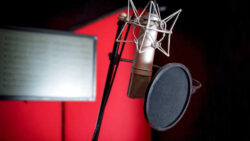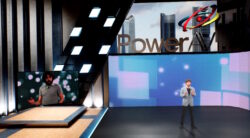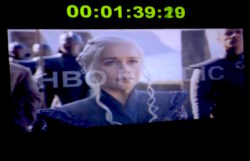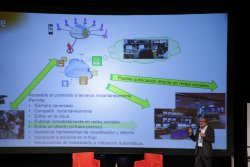IA: ¿la próxima frontera en el doblaje?
Jacques Barreau, “Dean of Dubbing” y Vice President – Media & Interactive Entertainment de TransPerfect Media, reflexiona en esta Tribuna sobre la inteligencia artificial y sus posibles aplicaciones en la industria del doblaje, las cuales no deben por qué ser negativas.
IA: estas 2 letras están empezando a asustar a muchas de las personas que forman parte de la comunidad del doblaje. ¿Serán el aprendizaje automático y la IA una amenaza o un apoyo para los profesionales del doblaje?
En esta tribuna, hablaremos de lo que la IA es capaz de conseguir actualmente en términos de reproducción de voces y matices, y veremos qué significa esto no solo para los actores de doblaje, sino para toda la industria del doblaje.
¿Qué es la IA?
Actualmente, la Unión Europea está intentando definir lo que es la IA. Sin entrar en demasiados detalles, y en aras de la simplificación, podemos dividir la IA aplicada al doblaje en 4 subgrupos:
- Voice morphing, tecnología que transforma una voz en otra voz.
- Texto a voz, herramientas que permiten convertir un texto escrito en audio.
- Voces sintéticas, las cuales se utilizan en audiodescripción, audiolibros o programas de e-learning.
- Transformación facial, solución con la que la boca del actor original sigue el sonido del diálogo traducido.
¿Algunos de estos subgrupos de IA ya pueden aplicarse en el doblaje? ¿De qué manera? ¿Sustituirán a los actores? ¿Qué lugar ocuparán en el futuro en la industria del doblaje?
Sabiendo que la IA ya puede generar bellos cuadros imitando el estilo de distintos pintores, podemos imaginar que también será capaz de generar diálogos en distintos idiomas manteniendo el estilo de los actores más famosos. Por supuesto, un doblaje bien hecho con buenos actores seguirá aportando un nivel de matices en la interpretación que la IA no puede aportar actualmente. ¿Será solo cuestión de tiempo?
 ¿La IA podría favorecer la creación de un nuevo grupo de superactores?
¿La IA podría favorecer la creación de un nuevo grupo de superactores?
Los matices en la interpretación son infinitos y la tecnología de texto a voz actualmente no es capaz de expresar todas las formas con las que se puede grabar la misma frase o incluso una única palabra.
El peligro que esto implica es que podríamos asistir a una simplificación de la actuación generada por la IA si algunas empresas cuentan por completo con la IA para duplicar las emociones humanas. Al igual que asistimos a una simplificación del pensamiento filosófico o político, bien podríamos ser testigos de una simplificación del “arte” de la interpretación en el doblaje debido a la capacidad de la IA de reproducir tan solo unas pocas emociones básicas.
He voice morphing podría provocar que menos actores doblen a más personajes, ya que sus voces podrían modificarse una vez finalizado su trabajo. ¿Impactará esto a la comunidad del doblaje? Por supuesto que sí, pero no necesariamente porque se reduzca la cantera de talentos, dado que, mientras todo esto sucede, la demanda está creciendo tan rápido que estamos buscando nuevos actores de doblaje en todo el mundo. Los actores de doblaje tendrán que aumentar sus habilidades y ser capaces de transmitir una mayor variedad de actitudes al doblar. En el caso de la animación, el voice morphing podría permitir que se concentraran más en la interpretación, dejando que la IA se encargue de la variedad de voces tan específica que traen consigo los personajes animados.
El parecido con los actores originales
La voz, como la imagen, es parte integral de la imagen de un actor y utilizarla sin su consentimiento es ilegal. Algunos actores ceden su voz a la IA, como algunos de nosotros cedemos nuestro cuerpo a la ciencia. Pero, para el actor, esto podría suponer menos trabajo, ya que la IA por sí sola podría generar contenidos con su voz. Por eso, los actores solo están cediendo el derecho a usar sus voces a cambio de una gran cantidad de dinero.
Al igual que los algoritmos pueden crear nuevos rostros en un teléfono inteligente, también están surgiendo nuevas voces… y esto lo cambia todo.
Por otro lado, ¿la transformación facial podría ser una solución para el doblaje? En este caso, la cara del actor original cambiará ligeramente cuando la boca siga el diálogo doblado. ¿Aceptarán los actores originales que su cara se mueva ligeramente o cambie de expresión en función del idioma? ¿Podría considerarse una violación de su propia identidad? En este caso, también será necesaria una regulación. Y es que, si bien las normas de doblaje son diferentes en cada país, no puede ocurrir lo mismo con la IA, ya que traspasará fronteras.
Recientemente, los algoritmos de morphing han pasado a estar listos para crear voces sintéticas. Al igual que los algoritmos pueden crear nuevos rostros en un teléfono inteligente, también están surgiendo nuevas voces… y esto lo cambia todo. Un actor podría dar su voz a la IA y no volver a oírla en ningún sitio, ya que se utilizará para crear una nueva voz sintética. En este caso, ¿cómo pueden los actores controlar el uso de su imagen si no podemos reconocer su voz? Este es un caso diferente de uso de la imagen y un verdadero reto para los departamentos jurídicos.
Asumir una mayor carga de trabajo: el verdadero reto de los actores
Este es el verdadero reto de la industria del doblaje actual: la existencia de un mayor volumen de contenidos que doblar en unos plazos más cortos. En este caso, la IA no es una amenaza para los actores de doblaje, sino una necesidad.
The IA no es una amenaza para los actores de doblaje, sino una necesidad.
En un futuro muy cercano, un pequeño grupo de buenos actores, y este número no es escalable, podrá doblar películas que requieran un alto nivel de matices interpretativos, al tiempo que un proceso híbrido utilizará voces sintéticas para papeles menores o ambientación de fondo. En realidad, ya vemos este modelo híbrido en algunos ámbitos como la traducción, donde la traducción automática hace la primera pasada y los humanos hacen una segunda para refinarla. La traducción automática no reduce el trabajo del traductor, sólo hace parte de él, por lo que la necesidad de traductores seguirá creciendo en todo el mundo.
Hacia nuevos horizontes
Del mismo modo que la traducción automática ha ayudado al negocio de la traducción, la IA podría ser una gran herramienta de aprendizaje para nuevos grupos de actores en los países que históricamente no han apostado por el doblaje. Aunque las plataformas OTT han empezado a emitir en muchos mercados emergentes (estamos doblando en Kenia, Nigeria, Vietnam, etc.), donde el doblaje no está tan desarrollado como en los países de doblaje tradicional, la necesidad de crear grupos de actores es fundamental.
En estas situaciones, de cara a satisfacer la demanda de un público que quiere ver más contenidos doblados en su idioma, la IA puede ser un gran acelerador para atraer a las generaciones más jóvenes al negocio del doblaje y desarrollar la sensibilización de la sociedad sobre el doblaje.
¿Y ahora los guiones?
Cómo terminar esta tribuna sin mencionar la huelga de guionistas estadounidenses. Una de las denuncias que acompaña a este conflicto es el uso injusto de la IA para generar guiones de programas de entrevistas, motivo por el que exigen que la IA no se utilice para generar nuevos guiones a partir de los ya existentes.
The IA puede aportar algunas cosas positivas al proceso de doblaje y la comunidad de actores tendrá que aprender a trabajar con ella, no contra ella.
Se trata de un punto importante, ya que la IA solo existe porque se alimenta de miles de voces, audios o documentos. Una vez más, necesitamos urgentemente una normativa ya que, en este caso, si la IA genera guiones imitando a los guionistas, ¿quién se llevará el mérito?
Conclusión
¿Quién sabe qué aplicaciones se descubrirán utilizando la IA? Es poco probable que la IA desaparezca de nuestras vidas a estas alturas y el doblaje no será la excepción.
No podemos imaginar lo que la IA será capaz de lograr, pero una cosa es segura: la IA puede aportar algunas cosas positivas al proceso de doblaje y la comunidad de actores tendrá que aprender a trabajar con ella, no contra ella.
Jacques Barreau
“Dean of Dubbing” y Vice President – Media & Interactive Entertainment de TransPerfect Media
Did you like this article?
Subscribe to our NEWSLETTER and you won't miss anything.



